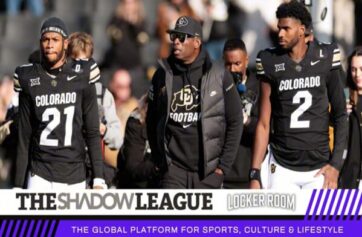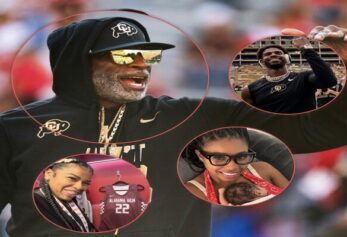When Shedeur Sanders flashed his watch following Colorado’s victory over Colorado State during the postgame interview, Sanders’ new celebratory flex started gaining popularity. It became a symbol of the nouveau riche gains of some college athletes who, in the face of competition, can look in their opponent’s eyes or at the crowd and declare their newfound financial status in the face of adversity.
The question on sports fans minds: will he stay at Colorado after his junior year and help his father build on the momentum or leave for the league once he is eligible? Currently, Shedeur has the highest NIL valuation in college football at $4.8 million, per On3.
With that comes another effect: fear of the non-graduating athlete because they only came to college for the potential NIL riches and not a college degree and the collegiate experience. U.S. Sen. Joe Manchin fears this greatly and thus has drafted the PASS Act of 2023 or Protecting Athletes, Schools, and Sports, to place limits on the transfer portal so student-athletes can focus on being a student and then the potential opportunities that come being an athlete.
“It’s hard to root for the kids when they’re multimillionaires as freshmen and sophomores,” the West Virginia Democrat said Tuesday during what is now the 10th congressional hearing on NIL, per USA Today’s Dan Wolken.
The bipartisan bill, which is co-sponsored by Alabama Republican Sen. Tommy Tuberville, is reportedly crafted to protect student-athletes, maintain fair competition and compensation, strengthen transparency, and preserve the time-honored tradition of college sports. Tuesday Senate Judiciary Committee hearing examined various legislative proposals to address NIL.
To Graduate Or Not To Graduate
Manchin’s statement reads like a book that you already know the ending to: collegiate athletes are only viewing institutions of higher learning as a fast track to early income potential and not long-term educational foundation. He feels that students who want to use their athletic prowess for financial gains should consider a professional career straight out of high school before college.
“I know you’re all here because you care as much as we all do about the student-athlete,” Manchin said during the hearing. “We’ve put a bill together … to put some guardrails for boosters and collectives to make sure they’re associated and in sync with the schools. … We also included transparency and clarity on NIL activities as well as additional protections for student-athletes.
“Bottom line: we are trying to make sure they have the full value of having a quality education—so they are able to graduate and provide for themselves and their family — but also the great experience of being a student-athlete.”
Of major importance to Manchin is the transfer portal which he wants to legally prevent athletes from transferring for the first three years. He believes that. the current transfer scenario means that athletes who transfer early have less of a chance to graduate.
Division I went to a notification-of-transfer model for the 2018-19 academic year, per NCAA Champion Magazine.
“The student-athlete is empowered by the change to the bylaw,” wrote NCA Champion Magazine’s Greg Johnson. “Once student-athletes ask that a compliance administrator place their name in the portal, the school has two business days to submit the information. It is up to the individual school to develop policies regarding portal requests.
“The downside for student-athletes is that their current school can reduce or stop giving them athletics aid at the end of the term in which the request was made to enter the Transfer Portal.”
The Three Year Factor
“Most of these student-athletes are receiving Pell grants,” Manchin continued. “So that means that the federal government is paying through Pell grants for the highest valued part of the scholastic is basically the money that comes in through the large sports programs, and that doesn’t seem fair to me. All of these other schools have other students who really need the Pell grants very badly but there is no value within the system that would pay for those students.”
Still, the genie is out of the bottle, and student-athletes are profiting from their name, image, and likeness as independent businesses. Will the students still want a college degree? Maybe they never really did but Joe Manchin’s proposed bill will give them three years to think about it before any transfer opportunities.



